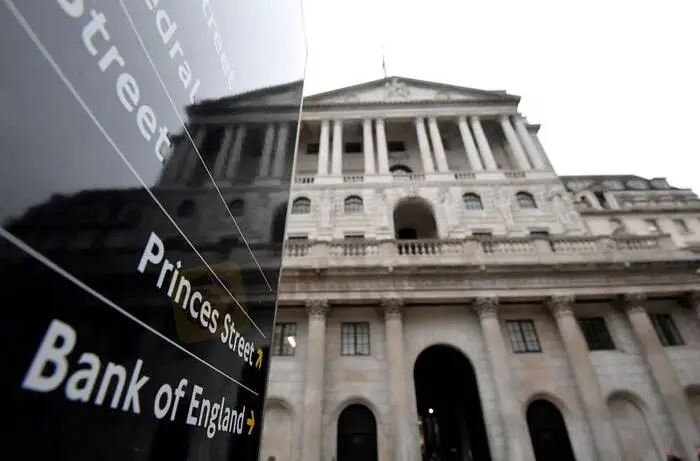简体中文
繁體中文
English
Pусский
日本語
ภาษาไทย
Tiếng Việt
Bahasa Indonesia
Español
हिन्दी
Filippiiniläinen
Français
Deutsch
Português
Türkçe
한국어
العربية
BoEs Mann: inflation fears drove vote for half point rate hike
Abstract:Bank of England policymaker Catherine Mann said she voted for a 50 basis point rise in interest rates this month because she saw little sign of an easing in the publics price expectations, which risk causing inflation to stay too high for too long.

Bank of England policymaker Catherine Mann said she voted for a half percentage point rise in interest rates this month because she saw little sign that publics price expectations were easing, which risked causing inflation to stay too high.
Mann was one of four Monetary Policy Committee (MPC) members to vote to raise interest rates to 0.75% from 0.25% this month, rather than the increase to 0.5% backed by the majority of the committee.
“To me, the data was still showing very robust expectations and I thought it was important to dampen those expectations using a 50 basis point increase,” she said in an online video discussion with Britains Society of Professional Economists.
“There was very little in the data that showed any diminution of expected wage increases, expected price increases or for that matter in financial markets … other than in gilts,” she added.
British inflation rose to 5.5% in January, its highest in nearly 30 years, and Mann said all MPC members agreed that was “way, way above our objectives”.
But policymakers differed on the extent to which Britains economy had recovered from the COVID-19 pandemic and whether there was likely to be lasting damage to the job market in the form of lower employment or participation rates, she said.
“I think it is pretty dangerous to talk about permanent changes to labour force participation at this stage,” she said.
Official data shows a drop in the proportion of older people in work or looking for a job compared with before the pandemic, and around half a million fewer people in employment overall.
Some of that drop probably also reflects European Union nationals who left Britain after Brexit or during the pandemic, either temporarily or permanently.
Mann said central bankers globally had been blindsided by the pace at which energy prices had risen, partly due to geopolitical factors which they could not predict.
If 2022‘s inflation dynamics mirrored those of last year, inflation would overshoot the BoE’s latest forecasts, which do not see inflation returning to its 2% target until early 2024, she added.
The BoE also needed to keep an eye on policy tightening by the U.S. Federal Reserve and potentially the European Central Bank. While higher rates abroad would tighten British financial conditions, they could also weaken sterling and push up inflation if the BoE lagged behind the curve, she said.
Financial markets currently expect the BoE to raise rates to 0.75% in March and to 1.75% by the end of 2022, with relatively little change despite Russias invasion of Ukraine.

Disclaimer:
The views in this article only represent the author's personal views, and do not constitute investment advice on this platform. This platform does not guarantee the accuracy, completeness and timeliness of the information in the article, and will not be liable for any loss caused by the use of or reliance on the information in the article.
Read more

Blockchain Decentralization: Empowering a Trustless Future
In recent years, blockchain technology has rapidly evolved from a niche innovation behind Bitcoin into a transformative force across industries. At its core, blockchain decentralization refers to the distribution of authority and decision-making away from a central entity and into the hands of a distributed network of participants. This shift redefines how data is stored and verified and paves the way for trustless, transparent, and resilient systems that challenge traditional centralized models.

The president of @Liberland, @Vít Jedlička come on stage, dialogue on trading security.
The 2025 WikiEXPO Hong Kong Station is about to grandly open. the president of @Liberland, @Vít Jedlička come on stage, dialogue on trading security.

Countdown: 1 day.WikiEXPO2025's first stop, Hong Kong, is about to open.
⏰ Countdown: 1 day. WikiEXPO2025's first stop, Hong Kong, is just tomorrow. Focus on transaction security and explore new investment opportunities. ???? Get ready to start now. See you tomorrow.

JustForex vs JustMarkets: A Comprehensive Comparison in 2025
Selecting the right forex broker can make the difference between trading success and frustration for most investors, especially retail investors. As retail traders gain unprecedented access to global markets, the choice between platforms like JustForex and JustMarkets becomes increasingly significant. Both brokers offer some shining features within the forex and CFD trading space, but their approaches differ in some areas.
WikiFX Broker
Latest News
The Withdrawal Trap: How Scam Brokers Lure Victims into Paying More
FCA to Investors: Think Twice Before Trusting These Brokers
Trump\s tariffs: How could they affect the UK and your money
Trump gambles it all on global tariffs he\s wanted for decades
TradingView Brings Live Market Charts to Telegram Users with New Mini App
Trump tariffs: How will India navigate a world on the brink of a trade war?
IG Group Acquires Freetrade for £160M to Expand UK Investment Market
U.S. March ISM Manufacturing PMI Released
Should You Beware of Forex Trading Gurus?
Exposed by SC: The Latest Investment Scams Targeting Malaysian Investors
Currency Calculator







